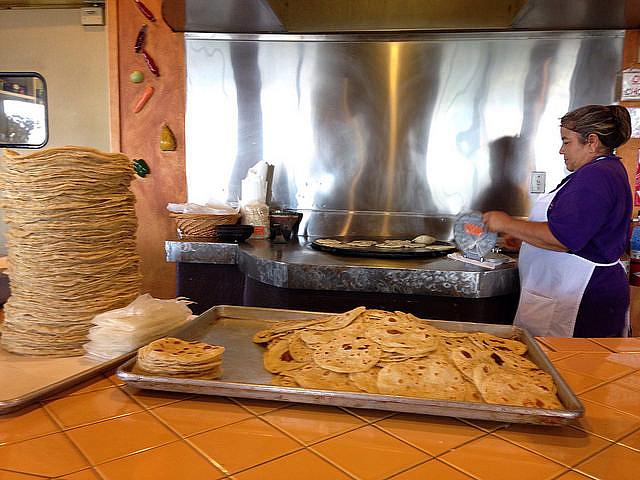Effort to curb birth defects through corn masa waits on FDA

A group of brain and spinal birth defects known as neural tube disorders is the kind of thing capable of giving expectant parents the worst kind of insomnia. In the case of anencephaly, babies are born missing parts of their brain and scalp, their survival typically a matter of hours. Spina bifida is more common and less severe, but can still lead to paralysis.
The causes of such defects aren’t well understood, but researchers do know that women who take folic acid before and during pregnancy substantially lower the risk. Since the FDA required the fortification of enriched cereal grains, such as those in bread and pasta, in 1998, neural tube disorders have decreased by 35 percent.
That huge public health success story hasn’t included everyone, however, as Hispanic women are 20 percent more likely to give birth to a child with a neural tube defect. The disparity is usually explained by way of diet: Corn masa, which is used to make tortillas, a staple of Hispanic cuisine, can’t be fortified with folic acid, according to FDA regulations. But that could potentially change, as the agency is currently reviewing new research on adding folic acid to corn masa and is expected to respond shortly.
You might wonder why this is even an issue at all — why doesn’t the FDA just permit adding folic acid to corn flour? The agency is reportedly worried about the stability of the additive, according to a statement it gave to NPR’s The Salt: “The FDA is concerned that the breakdown of folic acid in corn masa flour could yield a substance that raises concerns about safety.”
How those “concerns about safety” stack up against the very real risks of mothers giving birth to kids with severe birth defects is presumably one of the key questions regulators are wrestling with now.
No journalist has reported more extensively on the issue of neural tube defects lately than Seattle Times health reporter JoNel Aleccia, whose National Fellowship series for the Center for Health Journalism has zeroed in on an alarming cluster of birth defects in Central Washington state.
In addition to highlighting a series of missed opportunities for understanding what’s driving the Washington cluster, Aleccia has delved into the FDA’s policy on enriching corn masa, or what one former CDC official calls “a terrible policy error.”
Aleccia spotlights the work of Brigham Young food scientist Michael Dunn, whose research purportedly showing the stability of folic acid in corn flour products is currently under review by the FDA. “I’m quite confident that once they receive the results from this study, they’ll come forward with the final rule,” Dunn tells Aleccia. “We’re just crossing that ‘T,’ basically.”
It’s coming up on four years since the March of Dimes Foundation joined with the American Academy of Pediatrics and others to file a petition asking the FDA to reconsider its ban on adding folic acid to corn masa. Will the latest research persuade the agency to reconsider its stance, as Dunn predicts? Will the human costs of inaction — given fresh urgency by Aleccia’s reporting — outweigh the agency’s safety concerns?
We should know soon, with a response from the agency predicted this month.
[Photo by regan76 via Flickr.]

